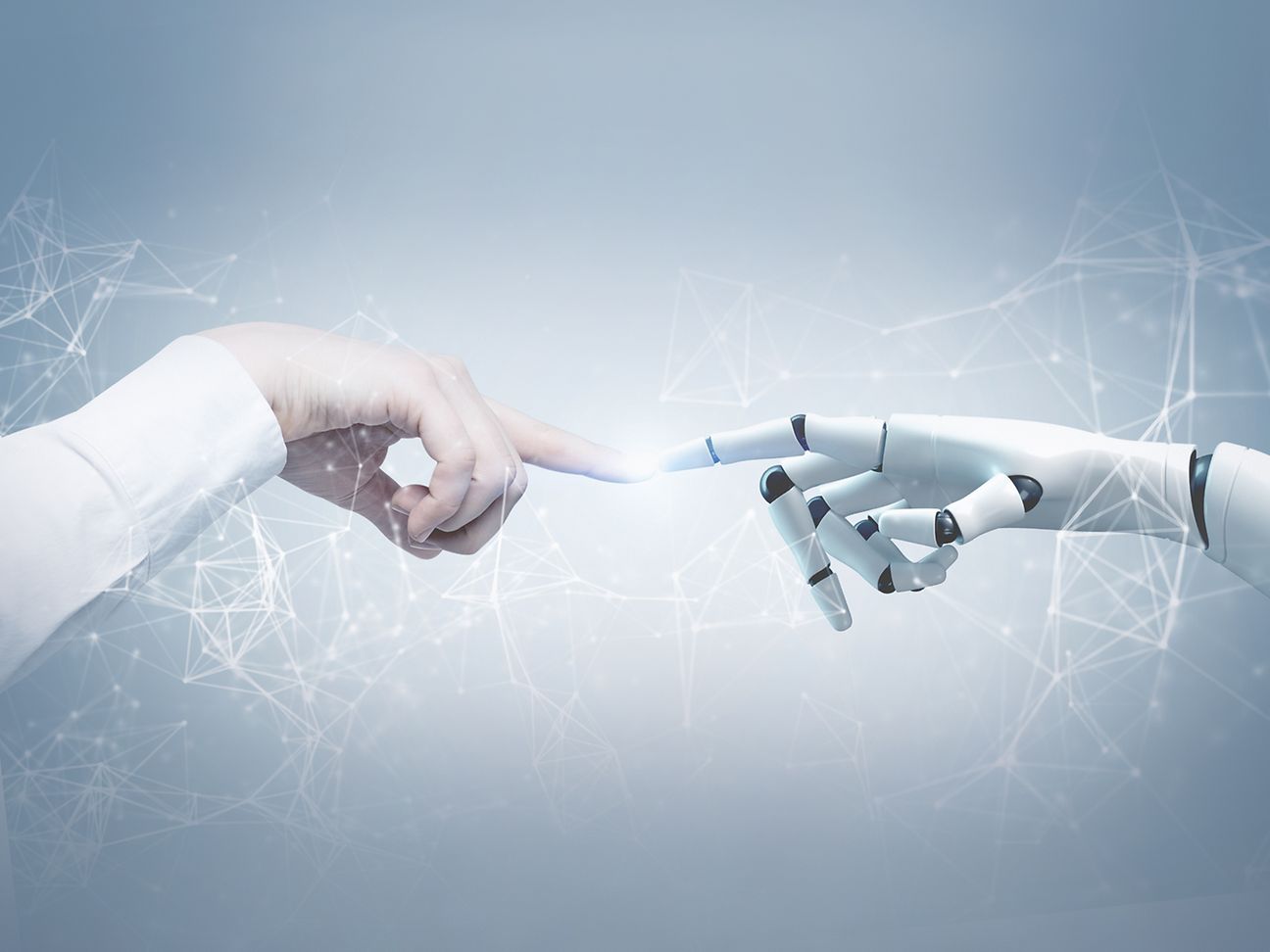Tim Höttges asks: Google CEO Sundar Pichai
In the fifth feature in the series of discussions on digital responsibility, Timotheus Höttges speaks to the CEO of Google, Sundar Pichai.
It was back in 1996 when "Deep Blue" beat the then chess Grandmaster Garri Kasparow. And in 2011, "Watson" emerged as winner of the quiz show Jeopardy! "Watson" combines an immense knowledge database with a semantic search that is capable of understanding the questions asked. This certainly comes pretty close to the human mind. “AlphaGo” already beat the multiple-time European Go champion last year. For many, that was a milestone in the development of artificial intelligence. Now another match for this board game is coming up, from March 9 to 15. This time, “AlphaGo” will pit its strengths against the world champion.
Timotheus Höttges: You know, we have this discussion about digital responsibility which we all bear. “AlphaGo” is playing very soon “Go” against one of the best play-ers here with your artificial intelligence system. So, what is special about the human brain?
Sundar Pichai: Look, “Go” has been around for 3.000 years. It’s a very intuitive game unlike chess. You know, it requires even more intuition and creativity, which are very unique about our human mind. I think that’s where computers typically, his-torically have tended to struggle. And that’s the difference I think.
Timotheus Höttges: Will there be a difference between the human brain and artifi-cial intelligence in the future? What is your foresight?
Sundar Pichai: The holy grail is, you know, especially when you start thinking about what creates human consciousness and so on and will AI ever get there. I believe it’s an unanswered question, but I think the rate at which we are making progress is exciting. So, I’m looking forward to the World Championship. Winning in “Go” would be a big progress.

